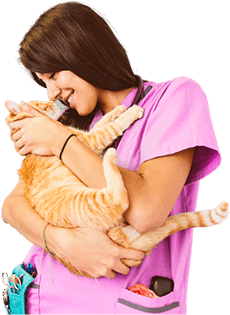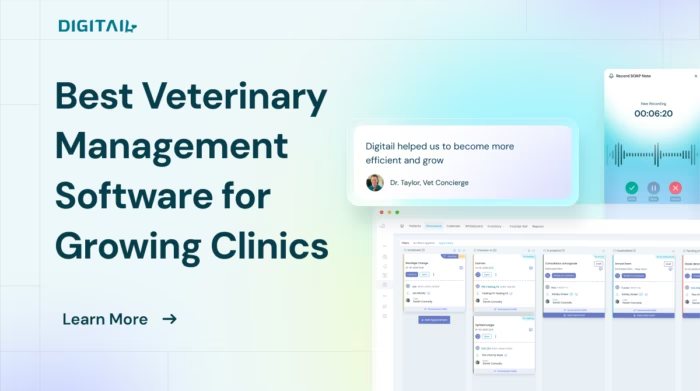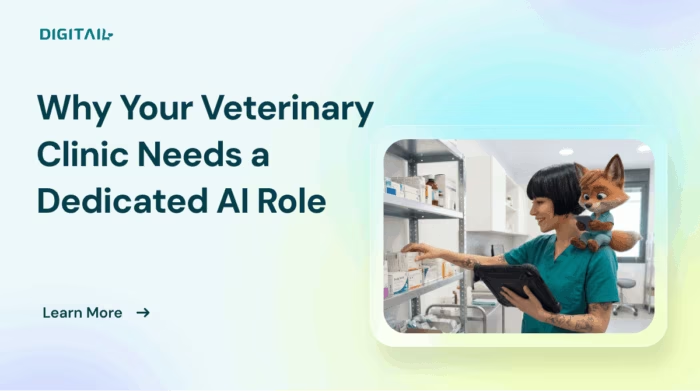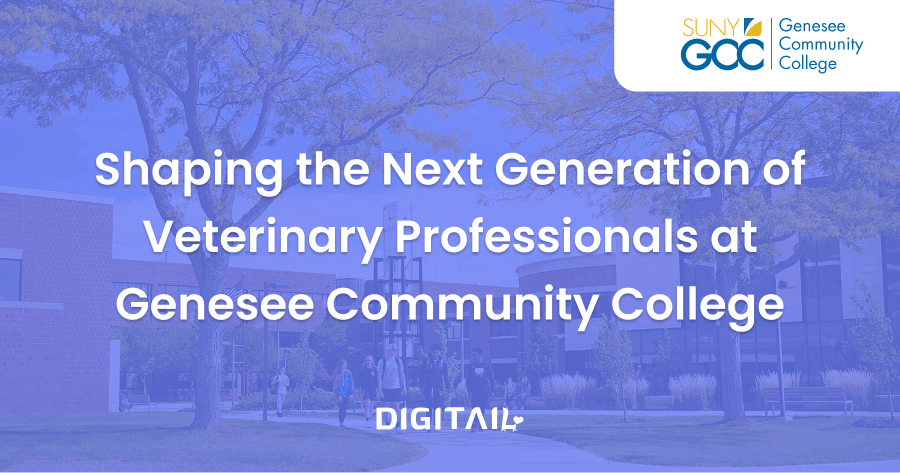
Shaping the Next Generation of Veterinary Professionals at Genesee Community College
At Genesee Community College in Western New York, the next generation of veterinary technicians is being trained not only in anatomy, pharmacology, and patient care — but in the veterinary software that now defines modern practice. Under the leadership of Stephanie Ortel, MS, FVTE, LVT, the Veterinary Technology Program has become a model for blending hands-on clinical skills with modern practice management.
From cloud-based medical records and skills tracking platforms to virtual reality training modules, students are exposed to the same digital ecosystem they will encounter in clinics after graduation. The result is a cohort of practice-ready professionals who enter the workforce fluent in both patient care and the technology that powers modern veterinary medicine.

A Program Built on Innovation
Founded in 2010 and fully accredited by the American Veterinary Medical Association (AVMA), Genesee’s Veterinary Technology Program now serves about 50 students across two cohorts, producing 15–20 graduates annually. Its foundation is rooted in a clear mission: to provide students with a quality education that blends medical knowledge, hands-on skill, compassionate patient care, the human–animal bond, and an awareness of environmental and public health.
That mission comes to life through rigorous academics and immersive clinical experiences with local shelters, clinics, and laboratories. Students graduate not only with technical skills, but also with the professional confidence to adapt quickly in any veterinary setting.
When Stephanie Ortel stepped in as program director two years ago, she saw an opportunity to align that mission with the realities of modern veterinary practice. She introduced Digitail’s veterinary practice management software, updated lab equipment, and veterinary-specific virtual reality modules to close the gap between classroom training and the digital workflows that define today’s clinics.
“These updates aren’t just about efficiency,” Ortel explains. “They ensure our students are fluent in the tools they’ll use to deliver compassionate, high-quality care while advancing the broader goals of animal and public health.”
The result is a program that doesn’t just prepare students to follow instructions, but equips them to lead workflows and improve outcomes from day one.
Life Before Practice Management Software
For years, much of Genesee’s veterinary technology program relied on paper. SOAP notes were handwritten, spay/neuter certificates were stapled and filed away, and lab results lived in folders tucked into cabinets. This approach ensured rigor in clinical documentation but didn’t reflect the workflows students would face in a real clinic today.
- Lab Animal & Vivarium: SOAP notes for animal care were handwritten, consuming faculty time and valuable storage space.
- Small Animal Lab: Records were managed by a shelter partner, with no reliable way for students or faculty to retrieve them.
- Clinical Techniques Lab: Lab results were entered on paper and stored in files, disconnected from case histories.
- Surgical Nursing Lab: Pre-op information was printed and stapled, surgical records handwritten, and spay/neuter certificates had no backups.
“Paper records gave students a strong foundation in clinical documentation,” Ortel recalls. “But as the profession shifts to digital workflows, we saw an opportunity to expand that training and give them experience with the tools they’ll use every day in practice.”
The Shift to a Digital Platform
The adoption of Digitail marked a turning point. What had once been a patchwork of binders and filing cabinets is now a cohesive, cloud-based veterinary software that mirrors the workflows of high-performing clinics.
- Lab Animal & Vivarium: Second-semester students now learn SOAP formatting within an EMR system, tagging entries with their initials for accountability.
- Small Animal Lab: Vaccinations, wound care, and dermatologic procedures are documented directly into Digitail PIMS.
- Clinical Techniques Lab: Zoetis analyzers feed results automatically into the PIMS, eliminating manual entry errors and delays.
- Surgical Nursing Lab: Procedures are scheduled digitally, records are stored securely, and spay/neuter certificates can be retrieved instantly.
The program is also preparing to roll out a digital surgical whiteboard, giving students experience with tools commonly found in advanced veterinary hospitals.
Simplify your practice. Amplify your care.
Digitail is the all-in-one veterinary software that runs your entire practice—saving you time, keeping clients happy, and helping your business grow.
Bridging the Gap Between Classroom and Clinic
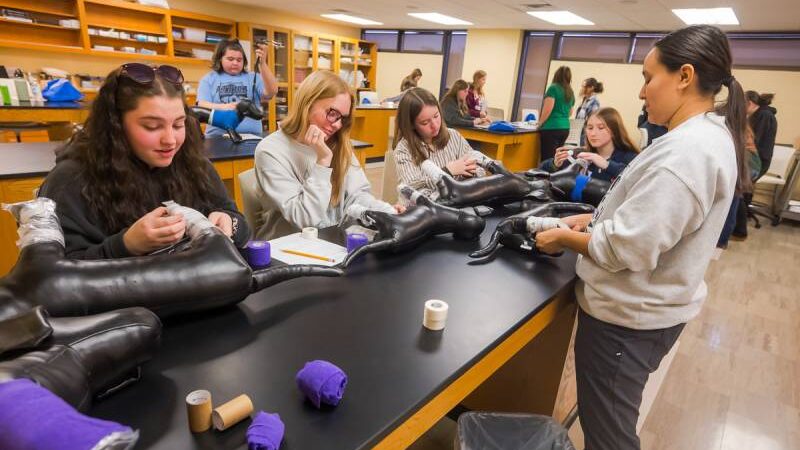
This shift isn’t just about convenience — it’s about preparing graduates for the realities of practice. Employers expect new hires to navigate vet practice management software from day one, and Genesee Community College is ensuring that expectation is met. Digital records reduce errors and improve collaboration. Integrated lab equipment mirrors the efficiency of modern hospitals. And by training within these systems, students build the digital literacy that allows them to step confidently into any clinic environment.
As Ortel explains:
“We’re not just teaching our students to be great vet techs. We’re preparing them for the demands of a profession that is evolving as quickly as the technology that underpins it.”
A Glimpse of Veterinary Education’s Future
Genesee’s investments reflect a broader shift in the field: veterinary education is no longer just about clinical skill but about pairing compassion with technological fluency. Emerging tools like AI-assisted charting, cloud-based collaboration, and data-driven diagnostics will only accelerate this trend. By embedding these tools into its curriculum now, Genesee positions graduates not only to succeed in their first jobs but to shape the profession as it evolves.
Looking Ahead
Genesee Community College may seem like a small program serving a small community. But what’s happening here carries weight far beyond the campus. In its labs and classrooms, students aren’t just learning restraint techniques or surgical protocols — they’re learning to think and work like the technicians of tomorrow.
The program’s blend of hands-on care, compassion, and digital fluency embodies a new model for veterinary education, one that mirrors the realities of modern practice while staying rooted in the human–animal bond. For graduates, that means leaving Genesee ready to walk into any clinic and contribute right away. For the profession, it signals progress toward a future where compassionate care, public health awareness, and technological fluency are no longer separate goals — but part of the same education.
